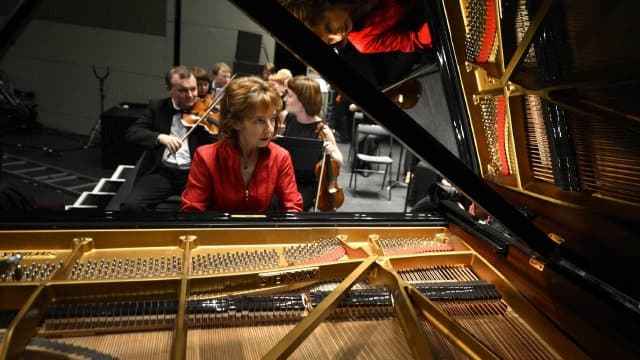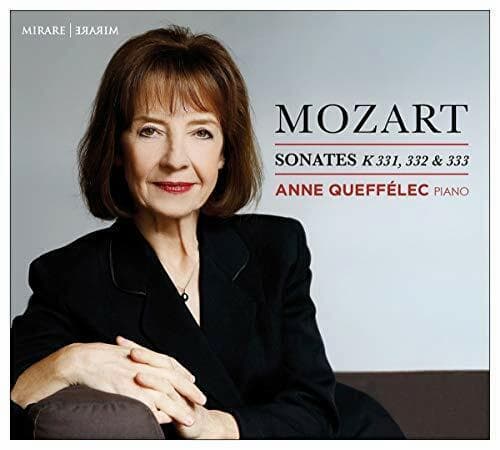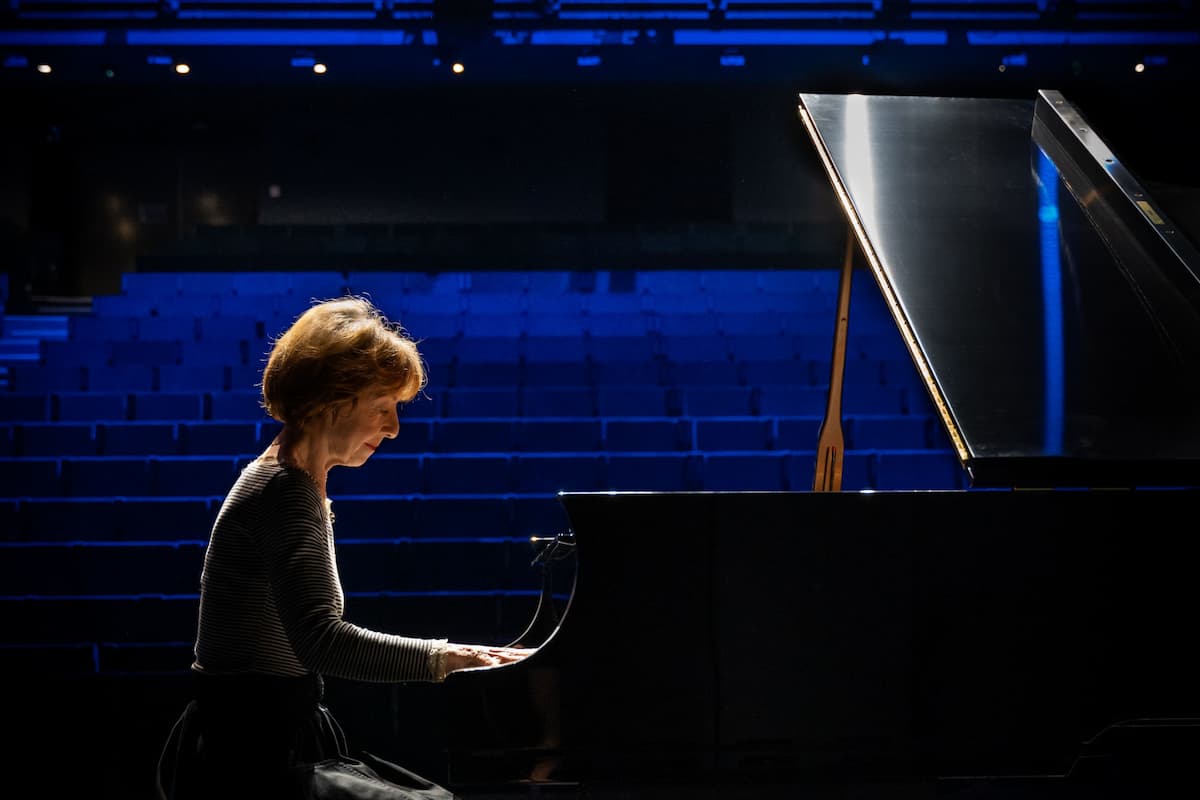Known for her even temperament and light, brilliant style of playing, Anne Queffélec has received international acclaim for her performances of French music and the keyboard works of Bach, Scarlatti, and Mozart. Queffélec is equally comfortable with the music of Schubert and an advocate of music ranging from Satie to Shostakovich.
Anne Queffélec Plays Satie’s Gnossienne No. 1
Childhood

Anne Queffélec
Born on 17 January 1948 in Paris, Anne is the daughter of Henri Queffélec, considered the great maritime novelist in France of the 20th century. He was the author of more than 80 books inspired by his native Brittany and by the sea. Her mother prepared all the manuscripts and acted as a literary agent for her husband.
As Queffélec delightedly explained, growing up in the post-war era which discovered the illusory consumer society, “my parents resisted modernity, including cars, refrigerators, and television. I grew up in a prehistoric cave, but in the cave, there was a piano and books, lots of books.” According to Queffélec, her parents were extremely cultivated, generous, and humanist and instilled in her intangible moral, artistic, and spiritual values.
Anne Queffélec Plays Bach & Handel (trans.)
First Studies and Competitions

Queffélec’s musical aptitude emerged at an early age, and she began serious piano studies at the age of five with Blanche Bascourret de Guéraldi. Guéraldi had been an assistant to Alfred Cortot, and she was passionate about culture and literature. Concurrently, she attended the Cours Hattemer, a private secular school with a flexible schedule tailored around a child’s special talents and activities.
Queffélec had to make a choice between her passion for literature and music, and she entered the Paris Conservatoire to study with Lélia Gousseau in 1964. She won the premier prix for piano a year later. Queffélec continued her studies in Vienna, taking lessons with Alfred Brendel and Paul Badura-Skoda, and she won first prize in the Munich competition in 1968.
Wolfgang Amadeus Mozart: Piano Concerto No. 27 in B-Flat Major, Op. 17, K. 595 (Anne Queffélec, piano; Orchestre de Chambre de Paris; Lio Kuokman, cond.)
Personal Compass

One year later Queffélec was a prize-winner at the Leeds International Piano Competition and she recorded her first Scarlatti record on Erato. Queffélec credits much of her artistic success and her general attitude towards life to her mother. “My mother died when I was 22,” she explained, “but I never lost her.” Shortly before her death her mother quoted Saint Augustine “Love and do what you will,” words that became a personal mantra for Queffélec.
She remembers her mother as a brilliant letter writer, and Queffélec has kept all her correspondence. “My mother was devoted to her family, was the product of her time. She anticipated feminism without the delusional and counterproductive excesses, and she did everything so that I grew up as a woman free to make my own choices.”
Anne Queffélec Plays Chopin
Professional Amateur
Anne Queffélec still considers herself a “professional amateur.” For her, music represents a quest, a journey that pulls us upward, towards the best we can be. She certainly feels incredibly privileged in her life, lucky to be born in France, of not having experienced war, of having children, and “living from her passion.” For Queffélec, “Music is the supreme art as it does not represent something fixed; it is like a sculpture of time and silence.”
Over a career spanning fifty years, Queffélec has remained disarmingly humble. As she stated in an interview, “As a pure Breton, for me, life is like sailing: we are all put on boats, we dock, we leave, there are storms, dead calm. All this to say that I don’t have a career plan, I never had one!”
For more of the best in classical music, sign up for our E-Newsletter
